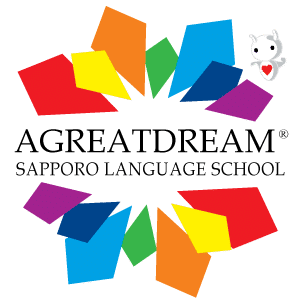文法 クイズ: 具象名詞と抽象名詞
CONCRETE NOUNS / ABSTRACT NOUNS
Concrete nouns are real objects we can detect with one or more of the five senses. You can see, hear, smell, touch, or taste them. Cat, microphone, ice-cream and screwdriver are examples of concrete nouns.
Abstract nouns are things/objects that can not be seen, touched, tasted, etc. Happiness, curiosity, hope, love and friendship are abstract nouns.
具象名詞 Concrete Noun – ♥ 心臓 Heart
抽象名詞 Abstract Noun – ♥ 愛 Love
Both a concrete and abstract nouns. Art, filter, key, order, and structure are examples.
具象名詞 Concrete – 鍵を使ってドアを開いて。Use the key to open the door.
抽象名詞 Abstract –成功の秘訣は練習をすること。 The key to success is practice.
If you are not sure weather the noun is concrete or abstract, the following questions might help you. Can I put it in my hand? Can I weigh it? Can I eat it? Can I smell it now? Is it sound or can I hear it? If yes, it is a concrete noun. If not, then abstract, if it is a noun.
Below are a few extra examples to help explain.
A rut is a hole or depression in a path. It can be seen, touched, and is concrete.
Order is abstract if it is used in the sense of organization. If it is the sense of an uttered instruction or a written document, it would be tangible and thus concrete.
A flaw might be concrete–a mis-stitch in a sweater, a crack in concrete. On the other hand a personality flaw would be abstract.
A trip is nothing that can be touched, seen, felt, tasted, or heard. Parts of the trip can be sensed (you can feel the road, touch the car, hear the laughter if it was a happy trip). But the trip itself is abstract. It lives apart from all of its tangible aspects.
Children is of course collective but it (they) is (are) also concrete. We wish they weren’t sometimes, but they can be heard, felt, touched…and smelt. Ugh. Maybe your teacher meant “childhood” which is definitely abstract and is sometimes used as an example of abstract nouns. But childhood and children are distinct.
Vacation is probably abstract. It is a unit of time which is as intangible and abstract as you can get (unless you have solved Einstein’s problem).
Voices–generally is defined as sound, and as such is a concrete noun.
Heat is in one sense concrete, if you mean hot objects, but the heat itself is a concept. You feel the air, but the heat is something apart from that, and so it is abstract (it is actually, of course, either motion or energy, and that is surely abstract, not concrete–Einstein aside for the moment).
Odor is problematical. A particular odor is concrete. But odor in general is an idea, and not concrete.
I think your teacher is wrong about audience and children. The idea of children is abstract, but particular children are concrete. So it would depend upon context.
![]() 問題 | Question Time:
問題 | Question Time:
Which nouns are both concrete and abstract nouns?
Is a rut an abstract or concrete noun?
What type of noun is heart?
What type of noun is love?
How many abstract nouns can you write?
![]() 答え | Answers:
答え | Answers:
Telephone us on 011-768-8116 to get your answers checked or even send us an email.

コメント: